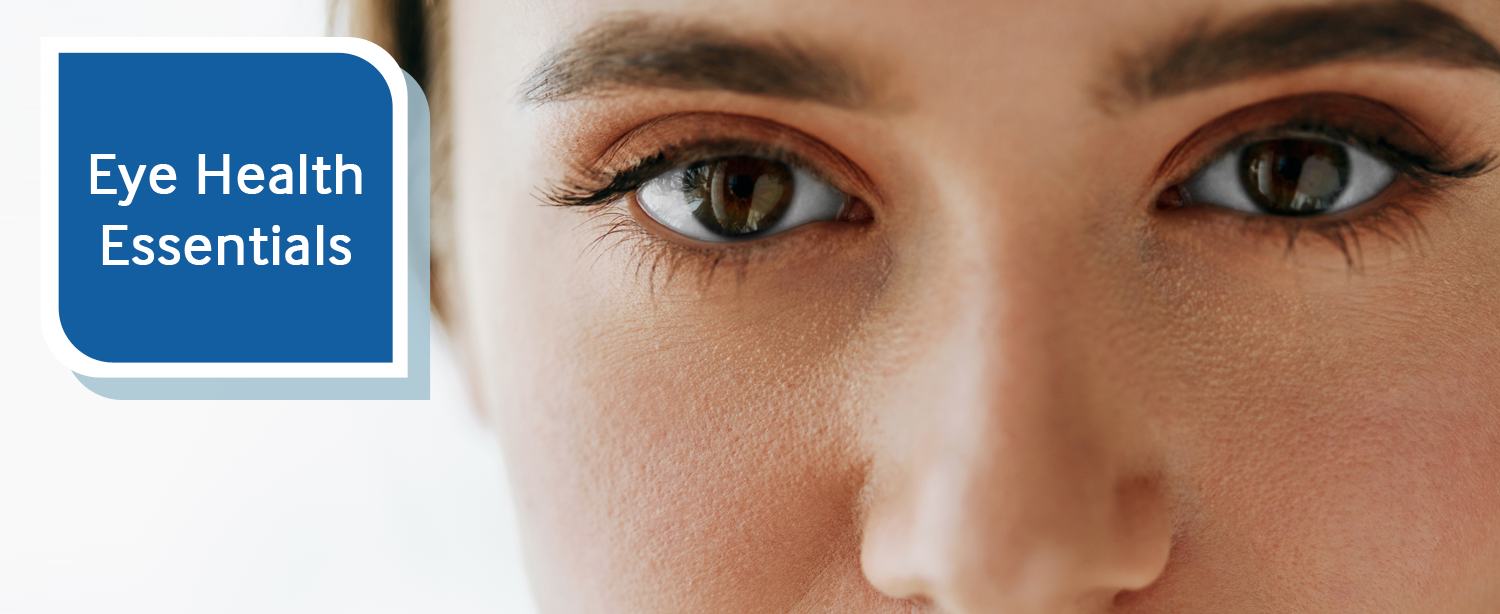Your eyes are an important part of your health. There are many things you can do to keep them healthy and make sure you are seeing your best. Follow these simple steps for maintaining healthy eyes well into your golden years.
Feed Your Eyes
Good eye health starts with the food on your plate. Nutrients like omega-3 fatty acids, lutein, zinc, and vitamins C and E might help ward off age-related vision problems like macular degeneration and cataracts. Eating a diet rich in fruits and vegetables, particularly dark leafy greens such as spinach, kale, or collard greens is important for keeping your eyes healthy.
Know your family’s eye health history
Talk to your family members about their eye health history. It’s important to know if anyone has been diagnosed with a disease or condition since many are hereditary. This will help to determine if you are at higher risk for developing an eye disease or condition.
Never sleep in contact lenses
The risk of developing a corneal ulcer is 10 to 15 times greater in extended-wear contact lens users than those who only wear their contacts during the day. Sleeping in contact lenses deprives your corneas of oxygen, that can cause infection and encourage bacteria to grow.
It’s fine to take a 20-minute nap in your contacts but it’s safer to take them out beforehand—just in case you oversleep! If you do wake up to realise you’re still sporting your lenses, don’t try to take them out right away; if your eyes are dried out, you could actually pull the top layer of your cornea away with them. Instead, wait 20 to 30 minutes and lubricate with artificial tears before you remove the contacts. Then stick to glasses for the rest of the day.
Use Safety Eyewear
If you use hazardous or airborne materials on the job or at home, wear safety glasses or protective goggles. Sports like ice hockey, racquetball, and lacrosse can also lead to eye injury. Wear eye protection. Helmets with protective face masks or sports goggles with polycarbonate lenses will shield your eyes.
Don’t touch and rub your eyes
Whether you wear contacts or not, you’re asking for trouble by unnecessary poking and rubbing your eyes. Sometimes your eyes itch and you have to rub, but it’s best to keep the lid closed and only touch the outside of the eye. Rubbing too hard can also lead to broken blood vessels and inflammation. Your eyes are protected by mucous membranes—moist tissue that can easily collect dirt and germs—so they’re a great place for bacteria to grow.
Give your eyes a rest
If you spend a lot of time at the computer or focusing on any one thing, you sometimes forget to blink and your eyes can get fatigued. Try the 20-20-20 rule: Every 20 minutes, look away about 20 feet in front of you for 20 seconds. This can help reduce eyestrain.
Get annual eye exams
Getting your overall eye health checked out is extremely important. There are no pain receptors in the eye, so if you have a broken blood vessel or a tumour, you would otherwise not know it until it starts to interfere with your vision, or worse.
Never use expired solution, lenses, or drops
Solutions have cleansers that kill bacteria on your lenses, so once expired, their ingredients cease doing their job.
The same thing goes for the lenses themselves, which sit in a sterile solution that can break down over time. Artificial tears and prescription eye drops also have expiration dates that you should pay close attention to, as well. And never rinse your contact case or store contacts in any liquid that’s not sterile, like tap or distilled water; both have been associated with Acanthamoeba keratitis, a drug-resistant corneal infection.
Wear sunglasses all year round
Failing to wear proper UV protection can result in corneal burns, skin cancer on the eyelids, and visible spots on the whites of the eyes. Make sure your glasses provide protection against UVA and UVB rays and wear them whenever you’re out in the sun.
Quit smoking or never start
Smoking is as bad for your eyes as it is for the rest of your body. Research has linked smoking to an increased risk of developing age-related macular degeneration, cataract, and optic nerve damage, all of which can lead to blindness.
At Kokilaben Hospital, we are committed to providing the highest quality of eye care as per international standards. From general services to the treatment of a variety of eye problems, our Ophthalmology Clinic combines cutting edge technology with professional expertise, compassion and dignity to deliver the best results.
https://www.kokilabenhospital.com/departments/clinicaldepartments/opthalmology.html


